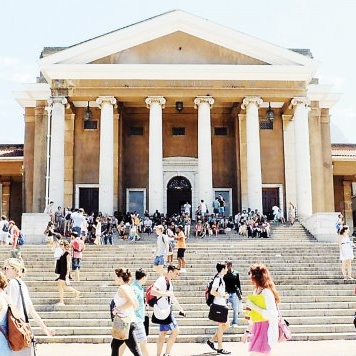click to dowload our latest edition
CLICK HERE TO SUBSCRIBE TO OUR NEWSLETTER


Published
5 years agoon
By
adminJORDAN MOSHE
He spoke to the SA Jewish Report this week in response to queries about the worth of a South African university degree now and in the future.
South African degrees are far from worthless, Habib says, in spite of negative perception following the recent protests which rocked local university campuses, and promises of free education.
“If you look at all the indicators by which we judge a university anywhere in world – research output, graduate output, skills capacity – our top-end universities are comparable with any across world.”
In fact, they are financially a much better bet, he says. “You would pay R100 000 to R150 000 for accommodation for a Wits or UCT [University of Cape Town] degree,” says Habib. “You would pay closer to R800 000 for the same at Oxford or Harvard. I would argue that relative to either of these renowned institutions, the degree we provide is comparable. You might have better access to some literature or equipment, but on balance, the quality of the degree is equal.”
He points out that Wits graduates who pursue postgraduate degrees overseas perform exceptionally well overall, and it’s “because of the grounding they receive here”.
Habib believes that those who believe a South African degree is not comparable or under threat of becoming worthless are ignorant. “They are extrapolating from the political context of 2015 and 2016, and making assumptions about the value of our local degrees. As one who has taught and studied overseas, I think the top end of degrees is certainly comparable.”
The United States (US) has about 5 000 tertiary institutions, Habib says, but only some of them offer a quality education. “The top 100 are magnificent institutions,” he says. “The bottom 200 can be shocking.
“People are often unaware, and land up choosing places that are weaker than our best here. Sometimes they lack knowledge of higher education, and operate on perception rather than reality.”
He does caution, however, that local universities are a differentiated lot, requiring careful selection before application. “For their cost, our top universities provide a world-class service.”
Habib says the potential for free university education should not affect its quality. “It’s not whether free education is offered, but whether the appropriate investment is made,” he says. “If the government offers free education and provision is made for the additional fees, it will have no impact on its quality.
“If you don’t make the necessary investment required, obviously there will be a crisis. However, that’s never been on the cards. We have made it clear that free education is not possible without appropriate investment.”
The issue of whether the state can afford to support the project is a different question altogether, especially without cutting back on other initiatives such as healthcare. “If you ask me whether free education in higher education is possible without affecting quality, my answer is yes, as long as the government makes up the difference.”
When it comes to employment prospects, Habib says we have to operate on the basis of data and evidence, not perception.
“There is a belief that there is no future for young white professionals in our country,” he says. “If you look at the actual data, the people who are employed the fastest are these very people.
“This is because most employment in South Africa works on the basis of networks, and a clear majority of jobs are offered on the basis of skills. In both areas, white professionals are at an advantage because of historical conditions. If you look at where unskilled people get jobs, you could argue in favour of the black majority.
“But if you look at where people get jobs in the private sector, the skills concentration and therefore employability lies primarily with white and Indian groups.”
He stresses that there is an urgent need for all of us to look at the evidence before making hasty judgements. “People make [judgements] based on political rhetoric. Do Julius Malema and Jacob Zuma say troubling things? Absolutely, but so do Nigel Farage and Donald Trump. Globally, we have challenges. Populism is on the rise, as are ethnic identity challenges. They afflict South Africa and other countries.
“We can’t run from these issues. We need to address challenges and hold people accountable. You won’t get away from it by going to the United Kingdom or the US, but you will find the same reality.
“We witness many debates in South Africa – race, identity, and others. The fact is that they have the same in the US and elsewhere. The same is true of violent attacks at universities. The rise of anti-Semitism in America or Western Europe makes South Africa look mild in comparison. We may have other fights, but not often about religion. That is something we often forget.”
